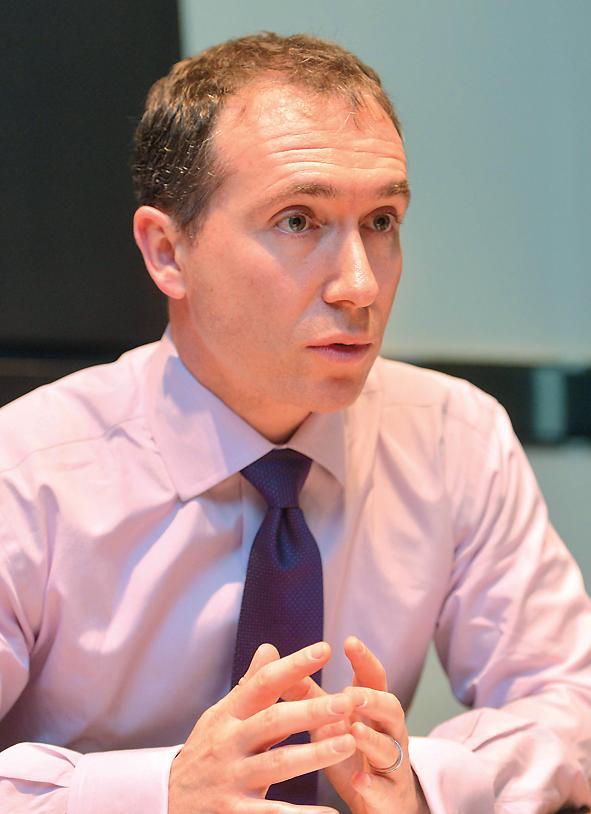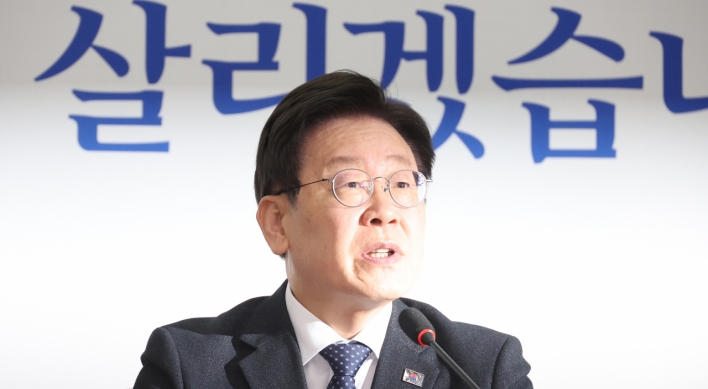Skilled international workers in high demand: recruitment executive
By Korea HeraldPublished : June 18, 2012 - 20:31
For a lucky few, it’s a myth that there aren’t enough jobs to go around.
Rather, employers are willing to shell out big bucks for Generation Xers and Yers with a special set of skills, according to a top executive of multinational recruitment firm Robert Walters.
“In many of the countries in which we operate, we’ve seen increased requirements for bilingual (or) multilingual people who have worked in an international environment,” said David Swan, the managing director of Robert Walters Japan and Korea, in an interview with The Korea Herald in Seoul last week.
And the supply of these workers is not keeping up with demand, according to Swan.
Swan’s company produces a report called the Asia Job Index four times a year, which tracks the number of open job ads placed in print and online media for professional positions in places such as China, Hong Kong, Japan and Korea.
According to this index, which the company has been generating since 2008, the job market for these workers has remained relatively strong and steady in East Asia.
And while the job market for these professionals in Korea isn’t as hot as in China, which is experiencing robust growth as multinational and Chinese corporations expand their operations in the country, the demand for these candidates in Korea has remained strong, Swan said.
In Korea, the sectors that are experiencing the most growth and looking to recruit these professionals include technology and online sectors, retail businesses, and online gaming, according to Swan.
Other booming sectors in Korea include luxury goods, health care, and the legal industry, which saw an unexpected rise of 11.3 percent in job ads during the first quarter of 2012, according to a Robert Walters company representative. He attributed the rise to the addition of new legal firms in the country.
Within these sectors, most of the jobs tend to be in finance, accounting, sales, or marketing, and the companies that are posting these ads usually include a mix of multinational companies with regional headquarters in Korea, or global Korean corporations.
They even include small-or medium-sized Korean companies, according to Anthony Modrich, the country manager of Robert Walters Korea. He declined to give specific names, citing company policy.
These new changes in hiring trends are caused by several factors, such as globalization and the blurring of the traditional corporate structure in favor of a “matrix” style organization that often crosses national borders, Swan said.
For example, a traditional Korean or Japanese corporate culture often tends to be very top-down, with employees reporting directly to a boss one rung above them on a corporate ladder, according to Swan. The boss in such cases is usually located in the same office or country, he said.
But in a matrix style organization, employees may have to report to an overseas manager, and may also have more than one boss that they have to report to, he said.
This requires more flexibility on the part of employees, as well as good language skills, Swan said.
Rather, employers are willing to shell out big bucks for Generation Xers and Yers with a special set of skills, according to a top executive of multinational recruitment firm Robert Walters.
“In many of the countries in which we operate, we’ve seen increased requirements for bilingual (or) multilingual people who have worked in an international environment,” said David Swan, the managing director of Robert Walters Japan and Korea, in an interview with The Korea Herald in Seoul last week.
And the supply of these workers is not keeping up with demand, according to Swan.
Swan’s company produces a report called the Asia Job Index four times a year, which tracks the number of open job ads placed in print and online media for professional positions in places such as China, Hong Kong, Japan and Korea.
According to this index, which the company has been generating since 2008, the job market for these workers has remained relatively strong and steady in East Asia.
And while the job market for these professionals in Korea isn’t as hot as in China, which is experiencing robust growth as multinational and Chinese corporations expand their operations in the country, the demand for these candidates in Korea has remained strong, Swan said.
In Korea, the sectors that are experiencing the most growth and looking to recruit these professionals include technology and online sectors, retail businesses, and online gaming, according to Swan.
Other booming sectors in Korea include luxury goods, health care, and the legal industry, which saw an unexpected rise of 11.3 percent in job ads during the first quarter of 2012, according to a Robert Walters company representative. He attributed the rise to the addition of new legal firms in the country.
Within these sectors, most of the jobs tend to be in finance, accounting, sales, or marketing, and the companies that are posting these ads usually include a mix of multinational companies with regional headquarters in Korea, or global Korean corporations.
They even include small-or medium-sized Korean companies, according to Anthony Modrich, the country manager of Robert Walters Korea. He declined to give specific names, citing company policy.
These new changes in hiring trends are caused by several factors, such as globalization and the blurring of the traditional corporate structure in favor of a “matrix” style organization that often crosses national borders, Swan said.
For example, a traditional Korean or Japanese corporate culture often tends to be very top-down, with employees reporting directly to a boss one rung above them on a corporate ladder, according to Swan. The boss in such cases is usually located in the same office or country, he said.
But in a matrix style organization, employees may have to report to an overseas manager, and may also have more than one boss that they have to report to, he said.
This requires more flexibility on the part of employees, as well as good language skills, Swan said.

In the Korean market, these language skills often refer to English and Korean, and sometimes Mandarin, Swan said.
And though he said it’s difficult to generalize, many of these bilingual or multilingual professionals spent time abroad during their school years or attended university overseas.
But living abroad isn’t a requirement, and Swan said that he’s seen some people who attained fluency through local language schools or through an international parent, though the latter is not a common phenomenon in Korea.
In addition to language ability, these workers tend to have other characteristics in common, according to Swan.
Educational and professional qualifications, relatively few job changes, as well as strategic thinking ability and leadership qualities are all highly prized by companies looking to hire these professionals.
But something else is even more important, and may mean the difference between getting hired or not, he said.
“Obviously education and technical ability is important, but (job seekers) shouldn’t neglect the soft skills, and the development of soft skills,” Swan said.
Soft skills, or “people skills,” include the ability to interact effectively with people from different cultures and backgrounds, as well as other social skills.
This is usually why most jobs require an interview, either in person or through video conferencing, in addition to tests and other qualifications, he said.
“It’s usually the way you present at an interview that gets you the job. So (these soft skills) often make or break the candidate,” Swan said.
And as one becomes more senior in any organization, “these soft skills take tend to take on greater importance,” he said.
So professionals looking to get promoted should try to cultivate these soft skills by participating in activities outside of work, through clubs, volunteering, and the like, according to Swan.
For now, the job market for these well-rounded bilingual or multilingual professionals looks bright, because “in many cases it takes years to develop the type of skills that are required,” and it will be years before the supply can keep up with demand, he said.
And the Korean job market for these professionals looks good as well, due to an increase in free trade agreements between Korea and other areas of the world, such as the EU as well as the United States. More trade deals may be in the works as well, such as a three-way deal between Korea, China, and Japan, Swan said.
The Korean government as a whole has been very active in the promotion of free trade agreements, which is great news for these job seekers, according to Swan.
“As a result of that we’re likely to see more foreign investment in Korea, which should result in increased requirements for these types of bilingual, international specialists, regardless of what happens in terms of the broader economy and the growth level over the next few years,” he said.
By Renee Park (renee@heraldcorp.com)
-
Articles by Korea Herald








![[Hello India] Hyundai Motor vows to boost 'clean mobility' in India](http://res.heraldm.com/phpwas/restmb_idxmake.php?idx=644&simg=/content/image/2024/04/25/20240425050672_0.jpg&u=)










